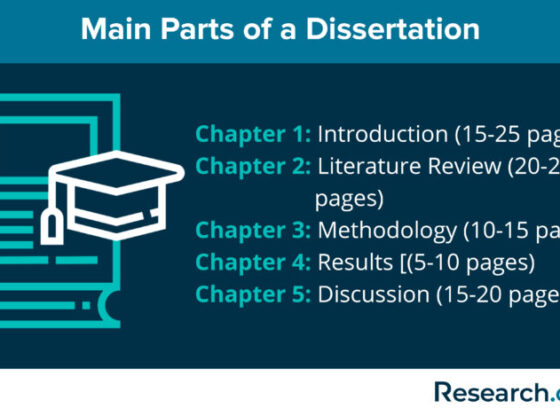Why Should Food Content Writers Remain Focused and Use These Tips?
Many times, food content writers take for granted that they simply realign the words to describe a recipe or exaggerate some restaurants as paid writers. If you go deeper to study the roles of a food writer, you come to know that it isn’t merely an art of playing with the words for prejudice. Food contents are wonderful creative juxtapositions that mingle information and creativity for excellent content to be read and evaluated. We have discussed the tips that can transform food content into something truly saleable.
Similar: Is Food Writing Important?
As a content writer, you have ample scope to sell yourself by expressing your expertise in the food industry by offering food writing. Here we examine five notable tips that will metamorphose your food content into a truly sought-after and thus most liked creative content stuff.
Read More: Want to Be a Food Writer?
Food Writers need to keep in mind
By incorporating the below-mentioned tips, you can make not only your content creation but also SEO-friendly food content to help the respective food joints or restaurant sites remain in leadership positions in search engines. It will resultantly prove helpful for food industry sites to get noticed and avail more business opportunities. Tips That Can Transform Food Content into Truly Saleable.
1. Explain recipes enthusiastically

It is well understood that when you write about certain recipes you talk about eating something which would be yummy for a big chunk of readers. As a writer, you must showcase your gourmet feel while describing recipes. Keep the tone of content simple and easily understandable.
Furthermore, turn your food content into a unique one by making it interesting stuff rather than highly informative yet dry as if being written for the chefs.
Keep your food contents in a narrative tone, as if you share an important experience with your readers. It must propagate your own pure joy of a great meal while you describe recipes. This is how your content will seek the attention of millions of readers who are also food lovers.
2. Avoid a hyperbolic content tone
Too much of everything is bad. It applies to food contents as well. Never keep praising a recipe or restaurant as if you are creating long, boring advertising copy. You must present an independent view of a recipe recommended to the readers. Undoubtedly, you must present the most praiseworthy aspects, but try to balance them by bringing forth boisterous factors as well.
Write with heart but describe the true features of a recipe. Get maximum information to highlight the pros and cons of recipes to let the readers make their own decisions. Don’t forget that today’s food lovers are equally health-conscious and information geeks. The moment they feel that your content is imbalanced, chances are high that they will stop reading the whole stuff.
Similar: SEO Content Writing Boosts SEO and Generates Traffic
3. Ignore generic elements in food contents
Even though you are describing the attributes or some negative factors of a recipe, you must avoid generic terms being a creative content writer. Your perspective must remain different from the common masses or your readers. Too much use of words such as delicious or tasty can bore a reader.
Similarly, describing too many caveats repeatedly will ruin your food article. Rather than telling your reader how to prepare a recipe, describe every fact about a particular in the true sense of entertainment and humor. If you can retain readers to read your content from start to finish, you indeed become an authority food writer.
4 Don’t copy others; explain in the natural tone
There is no dearth of food content writers today. As food lovers, everybody wants to express their minds about certain recipes they recently enjoyed. Use innovative options to describe them or the restaurants in your own words. A reader shouldn’t develop this feeling that you discussed a particular recipe as if they have been told it thousands of times.
Keep your tone natural and passionately personalized yet communicative. Your readers will enjoy reading recipe reviews even though they read about them many times.
Similar: Know about the Consequences of Duplicate Content
5. Don’t forget to do sufficient research
Even though you had firsthand experience in tasting a particular recipe, make sure to do additional research as a food writer. Try to incorporate as much information as possible. Bring various facts or information in a single article that relates to the particular recipe you are describing.
Your research and a little bit of planning through reading others before writing will add value. While doing so, you get many angles but still focus on your own to describe a recipe. By doing so, you will be considered the one who has a niche in food writing. People will admire your angle of defining recipes or restaurants, thus making you distinguished as a specialist.
Read More: Tips for the Food Review Writers
Conclusion: Tips That Can Transform Food Content into Saleable
Indeed, writing about food is not a draconian task. But, it seeks certain attributes to describe something remarkably. Your food contents aren’t simply the stuff that explains the recipes or their ingredients. You write such content for the websites. The intention is definitely to highlight the recipes or restaurants that offer such food to food lovers. You should thus focus on tailor-made content, even if it is about recipes.
Use keywords naturally, share your experiences honestly about how much you liked a particular recipe, and most importantly present facts in a narrative manner. If doing restaurant reviews, don’t turn your content fully promotional. Add some history of a recipe or a restaurant cursorily.
Give a unique turn to your content by profiling some chefs or restaurants and justifying why one should prefer that particular recipe. By incorporating several such ideas, you indeed seek the attention of your readers.
Greater Noida, an India-based SEO content development firm, has a team of experienced food content writers. Whether a content writer or a restaurant owner, you may approach our team for more tips and related services. To ensure quality and focused content, it has separate teams. Food writers write food and restaurant-related content, while travel writers are responsible for travel-related content.












